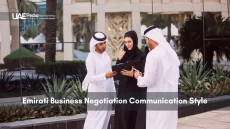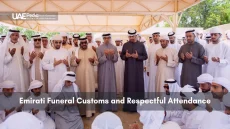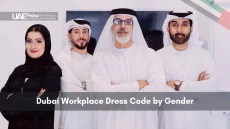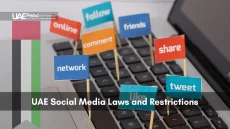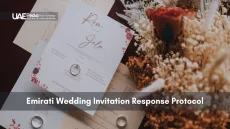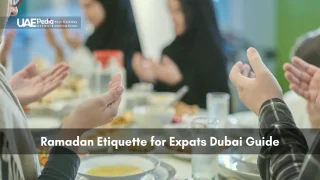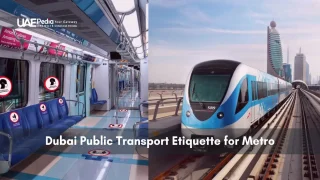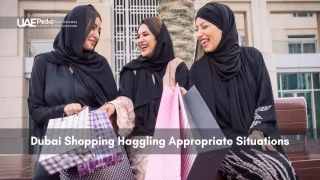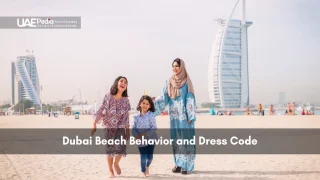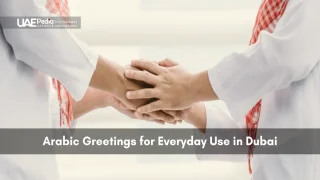What if a single piece of cardstock could make or break your next deal in the Emirates? In the United Arab Emirates, exchanging credentials isn’t just routine—it’s a ritual steeped in cultural nuance. Whether you’re a first-time visitor or a seasoned professional, mastering this unspoken language matters more than you might think.
Here, your credentials act as a handshake in paper form. They’re presented right-hand-first, often with a slight bow, and always with the Arabic side facing up. Missing that golden rectangle in your pocket? It’s like forgetting your name during introductions.
Design details matter too. Local etiquette demands bilingual text (Arabic and English), crisp corporate logos, and precise titles. Think of it as your professional DNA—every line tells a story about your role, company, and respect for tradition.
Why sweat the small stuff? Because in a land where skyscrapers meet souks, first impressions linger. Nail this exchange, and you’re not just sharing contact info—you’re building bridges in a culture that values honor as much as innovation.
In the United Arab Emirates, business-card exchange is a formal protocol executed only with the right hand, Arabic side facing up, at the first in-person greeting. The card must be bilingual (Arabic/English), display full name, exact title, company logo, phone (with country code), e-mail and website, and be kept pristine; storing another’s card in a dedicated case—not a pocket—is mandatory.
Hierarchy, relationship-building and conservative etiquette govern all interactions. Meetings begin with lengthy small talk, agendas are fluid, punctuality is respected but start times may slip, and decisions are top-down. Dress is modest and formal; gifts are modest and never alcohol or pigskin; the left hand is never used for giving or receiving objects.
Key Takeaways:
- Right-hand exchanges with Arabic text visible signal cultural awareness.
- Bilingual cards with clear titles are non-negotiable.
- Proper etiquette can transform transactions into trusted partnerships.
Understanding Dubai’s Business Culture and Card Etiquette
Navigating professional spaces here isn’t just about what you say—it’s how you say it. The UAE’s workplace norms blend desert hospitality with glass-tower efficiency, creating a rhythm where tradition and innovation share mint tea.
Cultural Nuances in the United Arab Emirates
Start with “As-salam alaikum”—a greeting that means “peace be upon you.” This simple phrase acts like a social handshake, signaling respect for Islamic values. Small talk about family or local customs often precedes deals, as UAE business culture prioritizes trust over timelines.
Three things to remember:
- Hierarchy matters: Senior members often lead discussions.
- Time bends: Meetings may start late but always end warmly.
- Gift-giving? Save it for established relationships.
The Role of Respect and Professionalism
Ever seen someone decline coffee during a meeting? That’s a no-go. Accepting refreshments shows you’re invested in the conversation. When exchanging credentials, use your right hand—the left carries different connotations in the Middle East.
Expatriates and locals alike value face-to-face interactions. As one Emirati executive puts it: “We work with people, not spreadsheets.” Master these unspoken rules, and you’ll find doors opening faster than a falcon diving for its prey.
Read More:
Preparing Your Business Card for Dubai’s Market
Think of your credentials as a golden key—crafted right, they unlock doors across the Emirates. This tiny rectangle isn’t just paper; it’s your mini-billboard in a land where first impressions stick like desert sand. Let’s design a tool that works as hard as you do.
Omitting Arabic text entirely risks alienating local stakeholders and may be perceived as disregard for cultural identity. Ref.: “Passport Career Editors (2016). Business Card Etiquette in the Middle East. Passport Career.”
Essential Elements for Impact
Start with non-negotiables: your full name, title, company logo, and contact details. Local professionals expect multiple ways to connect—include direct phone lines, email addresses, and your company’s website. One regional HR manager notes: “Omitting your title here is like serving coffee without dates—it leaves questions.”
- Prioritize clarity: Use fonts that read well in both languages.
- List social handles only if they’re professionally curated.
- Include physical office addresses—it signals permanence.
Designing for Dual Languages
Arabic isn’t just translation work—it’s art. Flip that rectangle over, and your Arabic text should mirror the English side’s importance. Use right-to-left formatting for seamless readability. A Dubai-based designer advises:
“Treat both languages as equals. If one side feels like an afterthought, so will you.”
Keep backgrounds light to ensure text pops. Gold foil accents? Subtle nods to local aesthetics work, but avoid overcrowding. Remember: white space is your ally in humid climates where smudged ink threatens professionalism.
Use proper right-to-left formatting and Unicode-compliant fonts to ensure Arabic text renders correctly on all devices. Ref.: “Strohal Legal Group Editors (2023). 8 Etiquette Tips When Doing Business in the UAE. Strohal Legal Group.”
Mastering Dubai Business Card Protocol Meetings
Timing is everything in the Emirates—even paper has its moment. That rectangular slice of potential sits patiently until precisely the right second reveals itself. Let’s explore when to play this crucial card.
When and How to Exchange Your Card
First encounters set the tone. Offer your credentials during initial greetings at conferences or before sitting down in formal settings. A Dubai-based etiquette coach advises:
“Treat each exchange like passing a treasured book—present it with intention, not haste.”
Networking events? Wait until genuine interest sparks conversation. Rushing this step feels like auctioning connections rather than building them. Observe local professionals—they often let dialogue flow before reaching for their holders.
Proper Use of the Right Hand in Exchanges
Your dominant side carries weight here—literally. The left hand traditionally handles personal hygiene, making it culturally insensitive for professional gestures. One slip could dim opportunities faster than a desert sunset.
Three golden rules:
- Always extend and receive with your right palm.
- If holding items, transfer them first—no juggling acts.
- Smile while presenting; warmth bridges language gaps.
Local enterprises notice these details. Get it right, and you’re not just swapping contact info—you’re speaking the unspoken language of respect that opens boardroom doors.
Dos and Don’ts of Exchanging Business Cards in Dubai
Imagine holding a golden ticket—except this one fits in your palm and speaks volumes without a word. In the UAE’s fast-paced professional world, every exchange carries hidden layers of meaning. Let’s decode the silent language of paper diplomacy.
Essential Etiquette Practices
Receiving credentials? Treat them like fragile artifacts. A local HR director shares: “Glancing at the details shows you value the connection—it’s not just paper, it’s a person.” Take three seconds to note names, titles, or unique design elements before tucking them away neatly.
In the services sector especially, timing matters. Offer your credentials after initial greetings but before diving into agenda items. If someone hands theirs first, reciprocate immediately—hesitation reads as disinterest. Keep your holder accessible but never whip it out during coffee breaks or meal times.Avoiding Common Pitfalls
Left-hand exchanges top the no-no list. One expat entrepreneur learned this the hard way:
“I fumbled with my latte and used my left hand—the meeting cooled faster than my drink.”
Other missteps include:
- Stuffing received items into pockets (use a dedicated case).
- Writing notes on someone’s credentials (bring a notepad).
- Forgetting bilingual text in the tech sector.
Whether you’re in finance or hospitality, these details shape perceptions. Nail them, and you’ll find doors opening across industries—sometimes before the coffee arrives.
Integrating Local Traditions into Your Professional Style
Ever wonder how a well-chosen outfit could become your silent ambassador in the Emirates? Here, threads weave stories of heritage and modernity. Blending tradition with global professionalism isn’t just smart—it’s expected.
Adhering to Local Dress Codes
Think of clothing as cultural shorthand. The flowing kandura for men and elegant abaya for women aren’t just garments—they’re symbols of identity. While expats aren’t required to wear traditional attire, modest choices signal respect.
| Setting | Recommended Attire | Avoid |
|---|---|---|
| Corporate Offices | Tailored suits, knee-length skirts | Short sleeves, sheer fabrics |
| Social Events | Embellished abayas, crisp dishdashas | Logo-heavy brands |
| Government Meetings | Neutral tones, closed-toe shoes | Flashy accessories |
A local fashion consultant notes:
“Your collar stays buttoned, but your smile shouldn’t—warmth bridges style gaps.”
Understanding Social Customs and Greetings
That first “As-salam alaikum” does more than greet—it aligns you with shared values. Elders often enter rooms first, and interrupting someone mid-sentence? That’s like serving tea cold.
Three quick tips:
- Shake hands gently—no power grips.
- Ask about family before deals.
- Stand when seniors arrive.
Modern workplaces still hum with Bedouin hospitality roots. Nail these nuances, and you’ll find colleagues becoming allies faster than you can say shukran.
Effective Communication and Networking Strategies in Dubai
Ever wondered how a shared story could unlock boardroom doors faster than a perfect pitch? In the Emirates’ buzzing professional hubs, your ability to connect often outweighs credentials. Face-to-face interactions remain king here—where trust forms through eye contact, not email threads.
Making a Strong First Impression
That initial handshake? It’s your opening act. A local tech founder recalls:
“I landed our biggest client by complimenting his cufflinks—turned out they were his father’s.”
Small gestures create big ripples. Keep your grip firm but not crushing, and let your smile arrive before your words.
| Setting | Recommended Attire | Key Gesture | Conversation Starter |
|---|---|---|---|
| Conference Halls | Tailored blazers | Brief eye contact | “What brings you to this event?” |
| Hotel Lounges | Smart casual | Open palm gesture | “Have you tried the karak here?” |
Notice patterns? Formal settings demand polished looks, while casual encounters thrive on cultural curiosity. One hospitality executive shares: “My go-to move? Asking about favorite local dishes—it reveals more than LinkedIn ever could.”
Building Personal Relationships in Business Settings
Forget transactional chats. A real estate mogul attributes her success to desert camping trips with clients:
“Sharing sunset views over dunes builds bonds no contract can match.”
Find common ground—whether it’s golf, art, or camel racing traditions.
Three relationship boosters:
- Swap elevator pitches for childhood career dreams.
- Remember family members’ names mentioned in passing.
- Share lighthearted fails from early career days.
In this fast-paced environment, authenticity cuts through noise. Master these rhythms, and you’ll find colleagues becoming collaborators—often before dessert arrives at those endless coffee meetings.
Navigating Meetings, Negotiations, and Decision Processes
Picture this: a negotiation table where silence speaks louder than spreadsheets. In the UAE’s corporate landscape, patience isn’t just a virtue—it’s the secret sauce that transforms proposals into partnerships. Let’s unpack how to steer these exchanges like a desert navigator reading stars.
Structuring Business Meetings in the UAE
Time bends differently here. A real estate developer in Abu Dhabi shares:
“We spend the first 20 minutes discussing family health before glancing at blueprints—that’s how trust gets poured stronger than Arabic coffee.”
Three structural musts:
- Schedule 30% extra time for personal connections.
- Let senior members set the agenda’s rhythm.
- Keep documents accessible but unseen until requested.
Strategic Negotiation Tactics and Patience
Watch for what’s not said. During a recent local business expansion deal, executives noticed their Abu Dhabi counterparts leaning back whenever numbers were pushed too fast. They switched tactics—pausing after each point, mirroring body language—and closed the deal over rosewater desserts.
Key strategies:
- Use the local language for key phrases like “shukran” (thank you).
- Note subtle cues: tea refill pauses often signal decision points.
- Present options, not ultimatums—collaboration trumps pressure.
In real estate especially, decisions ripple through extended networks. A calm “We’ll consult” might mean weeks of internal discussions. Stay ready with follow-ups that respect this layered process—your persistence should whisper, never shout.
Adapting to the Dynamic Business Environment in the Middle East
Imagine navigating shifting sands where ancient trade routes meet AI startups—this is today’s Middle Eastern marketplace. Thriving here means bending like a desert palm: rooted in tradition yet reaching for global opportunities. Let’s unpack how to ride these winds of change.
Leveraging Opportunities in a Global Marketplace
Growth here isn’t linear—it’s a mosaic of old and new. One tech founder shared:
“We closed a deal by pairing blockchain pitches with Arabic coffee rituals.”
Success hinges on blending innovation with cultural IQ. Use yourright handwhen sharing documents—it’s more than politeness, it’s professional poetry.
Three adaptive strategies:
- Map the decision-making process—approvals often flow through family networks.
- Time giving gifts like perfume: subtle and after trust blooms.
- List your phone number with country codes—clarity avoids “inshallah maybe”.
| Traditional Practice | Modern Twist | Impact |
|---|---|---|
| Right-hand exchanges | Digital business profiles | Balances respect & efficiency |
| Family-first negotiations | Cloud-based due diligence | Builds trust at scale |
Emirati business thrives on this duality. A consultant in Abu Dhabi notes: “Your LinkedIn can’t replace face time—but it better have a local phone number.” Whether you’re in renewables or retail, understanding these layers turns challenges into launchpads.
Remember: gifts aren’t bribes—they’re relationship embers. Think quality dates (the fruit) or artisan crafts. And when presenting ideas? Let the decision-making process breathe like tea steeping—patience reveals flavors haste destroys.
Final Reflections on Elevating Your Business Interactions in Dubai
In the dance of professional connections here, every step reveals character. From bilingual credentials exchanged like treasured heirlooms to pauses that honor decision-making rhythms, success lives in the details. Master these, and you’re not just following rules—you’re composing trust.
Small gestures cast long shadows. Using your left hand for casual tasks while reserving the right for exchanges isn’t just polite—it’s poetry in motion. One finance leader shares: “How you handle paper here predicts how you’ll handle partnerships.”
Women now steer nearly a third of startups in the Emirates, reshaping traditional norms. Their growing influence enriches every business setting, proving inclusivity fuels innovation. When a female CEO offers her credentials, receive it as you would a male peer’s—with equal attention.
Three closing moves:
- Practice mirroring body language during discussions.
- Update your company name across all materials annually.
- Schedule follow-ups 48 hours post-meeting.
Walk into your next encounter ready to listen first, adapt always, and connect beyond the boardroom. The desert rewards those who respect its rhythms—and so does its thriving professional landscape.
In the UAE, exchanging cards symbolizes mutual respect and commitment to partnership. Treat each card like a handshake – present it carefully with your right hand, study it briefly, and avoid hastily tucking it away. This shows you value the connection beyond just collecting contacts.
Absolutely! A bilingual card (English front/Arabic back) demonstrates cultural awareness. Ensure translations are flawless – a misplaced vowel can change meanings. Local print shops like Alpha Arts in Dubai Marina offer same-day services if you need last-minute adjustments.
Patience pays. While Western meetings often start with card swaps, Emirati etiquette favors relationship-building first. Share karak chai or gahwa (Arabic coffee), engage in light conversation about family or local events, then present your card when deeper discussions begin.
Conservative attire (think tailored suits, covered shoulders) aligns with local norms and shows professionalism. When reaching to present your card, well-groomed appearance reinforces attention to detail – a trait highly valued in UAE business culture.
Rushing the process tops the list. Never offer your card left-handed, toss it on the table, or interrupt someone mid-conversation to exchange. Wait for natural pauses, make eye contact, and use both hands if receiving from senior executives.
Hold that LinkedIn request! Emirati business relationships thrive on personal touch. Wait 24-48 hours, then send a brief WhatsApp or email referencing your conversation. Better yet – ask during the meeting: “Would you prefer I connect via your preferred channel later this week?”






